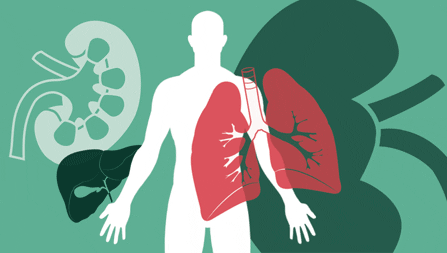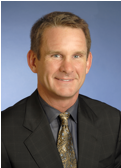When I came to India back in August 2014 to help promote the burgeoning fields of organ donation and deceased donor transplantation, I expected to find many differences in the challenges facing organ donation awareness between India and the United States. As an organ donation advocate in the US, I am intimately familiar with the American challenges to educating the public toward an increased acceptance of this noble act. Time and again, I have been told that India has unique cultural and religious barriers to the acceptance of organ donation and that these would be, necessarily, very different from those in the US.
It turns out that there are more commonalities than differences between India and the US when it comes to organ donation awareness. I would go so far to say that these challenges are essentially the same, we’re just speaking different languages.
The main issues with organ donation awareness are lack of public and professional education. The latter is particularly important, as demonstrated by the success of the Spanish model (where they specifically concentrate on training hospital professionals to achieve the best organ donation rates in the world), and as a result of my own personal experience here. Doctors (particularly non-transplant doctors), nurses, hospital administration, and ancillary service personnel all need to be educated and sensitized to the purpose and benefits of organ donation and deceased donor transplantation, so that a culture arises where this activity is acceptable, if not embraced for the miracles it brings. Professional education should be the main focus of anyone promoting organ donation awareness and this is as true in Rochester, New York as it is in Jaipur, Rajasthan.
Although different religions may appear very different on a superficial level, they are all preaching essentially the same thing: how to live a good life in a completely unpredictable, often harsh world. So it’s no surprise that all major organized religions support the good deed of organ donation. Now, certain religious sub-factions are more or less willing to become organ donors, but this spectrum of willingness exists in the US as it does in India. While Muslims, Orthodox Jews and certain Buddhists are less amenable to donation, followers of other religious traditions such as Hinduism, Jainism, Sikhism and Christianity are more amenable.
The all to often heard “fact” that Indians do not want to donate because of religious reasons is simply not true. I know this from my experience in Rajasthan, where in less than two months, five families have graciously consented to the donation of their loved one’s organs (three of these cases progressing to actual donations and transplants). I also know from the experience of others, such as in Chennai with a 65% conversion rate (actual donors/potential donors) and >80% conversion rate in Kochin, Kerala. The notion of “Daan” seems to overpower any concerns for bodily integrity at the time of passing.
Similarly, cultural barriers are certainly different from one group of people to another, but these are all surmountable with appropriate educational interventions. African Americans prefer to learn about organ donation from their own trusted leaders, be they political or religious. Hispanics are more favorable toward organ donation when they learn that their priest says it’s okay. Indians are learning more about organ donation through media and most are apparently enamored with the idea.
Another commonality is the near universal acceptance of organ donation among the world’s youth these days. Whether in India or the US, young people are much more likely to enthusiastically endorse organ donation, especially when they are provided with education that speaks specifically to them. Remember when we all wanted the world to be a better place and we wanted to share this enthusiasm with all our friends? That’s a beauty of youth and always will be.
So, even though the food tastes different here (I think better!), the challenges to organ donation are essentially the same as my home. In retrospect, perhaps this is not too surprising given the universal humanity that organ donation represents.



Dr.Berry is well known as one of the Best of the Best his humor and kindness his well beennand respects for humans is outstanding. Your expectation for Organ Donation and saving Life’s. Is bight.Please keep up the great work and thank you for keeping the WORD inform.
Interesting that the problems are pretty much the same. One would’ve thought that it would be drastically different.
Hi…
thanks for sharing your valuable insight with us.
I appreciate your approach and the idea you shared with the users.
please keep sharing such blog with us.